How To Make Mehendi Darker: 12 Expert Tips For A Rich Stain
Let your mehendi color stand out in the crowd with these easy and effective tips.
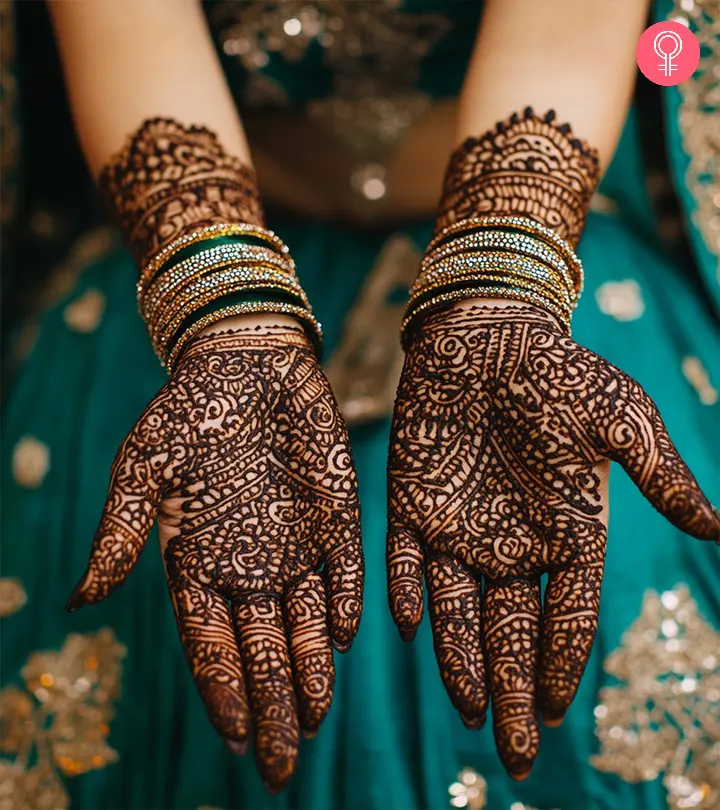
Image: Midjourney/ StyleCraze Design Team
Henna or mehendi has been used as a dye to color the skin, hair, and clothes for centuries (1). It is used for body art in Arabia (the Arabian peninsula), ancient Persia (modern Iran) and Mesopotamia (parts of present-day Iran, Iraq, Syria, and Turkey), Tunisia, Africa, and India and is a part of Hindu and Islamic cultures. Henna or mehendi is a part of wedding rituals and is said to bring prosperity to newlyweds. It is believed that the darker the stain, the deeper the bond. That is one reason brides are keener to get a brilliant and dark mehendi stain. If you want to know tips and tricks on how to make mehendi darker, we are here to help. Keep reading to know the dos and don’ts of applying mehendi.

 Keep In Mind
Keep In Mind- Exfoliate Your Skin: Exfoliate Your Skin Exfoliation helps remove dead skin cells and helps the henna stick to your skin better.
- Use Stencils: Exfoliate Your Skin Use stencils to create perfect designs if you are a beginner or short on time. Place the stencil on your skin and apply henna over it.
- Avoid: Exfoliate Your Skin To prevent smudging, avoid activities that can make you excessively sweat in the first few days after applying henna.
- Hairstyle: Exfoliate Your Skin Braided updo, top knot, messy bun, high ponytail are some of the best choices.
- Outfit: Exfoliate Your Skin Lehenga choli, anarkali suit, salwar kameez, saree, sharara are some of the best outfit ideas that go well with mehendi.
In This Article
Cultural Significance Of Mehendi
Applying mehendi or henna is a cherished tradition in many Southeast Asian countries. It is an integral part of weddings and is considered an emblem of a blissful married life. The rich henna stain, beyond its aesthetic appeal, carries profound cultural meanings, symbolizing fertility, positivity, and fortune. People believe that a darker mehendi stain is a sign of true love and a strong marital connection further underlining its cultural standing. Apart from that, mehendi is worn on various occasions and festivities, signifying joy and the spirit of celebration. In many cultures, it is also seen as a protective charm that wards off negative energies, adding to its cultural depth.
In earlier times, before people realized the potential of mehendi for aesthetic purposes, it was primarily valued for its cooling properties. A paste was made and applied generously to the palms and soles, to provide relief from excessive heat. Later, with the discovery of henna’s medicinal effectiveness, it was used to treat ailments such as stomach aches, open wounds, burns, and headaches.
Today, mehendi has evolved into a form of self-expression. It’s not just about the design, but about the stories people share through their mehendi art. Each motif and symbol added to the design is a reflection of their deep feelings, adding a personal touch to this age-old tradition.
Beyond its rich cultural symbolism, the transformation of mehendi’s color is a fascinating feature that has led it to become a popular art form. Scroll down to explore the science behind how and why mehendi turns black.
Why Does Mehendi Turn Black?
Initially, after application, the mehendi color appears light. But it darkens as you leave it on for a longer time. It is because of the pigment called lawsone. It bonds with the skin cells, collageni A natural protein produced in the connective tissues, providing a structural framework for the skin and making it elastic. , and keratini A protein in the human body that keeps nails and hair healthy and shiny, supports the outer layer of the skin, and heals skin wounds. (in nails and hair) to give a dark brown-black color (2).
There are three types of henna (3):
- Red Henna: It gives an orangish-brown and reddish-brown tint to the skin.
- Neutral Henna: It does not have any color.
- Black Henna: It dyes the skin black.
Black henna combines regular henna and PPD or para-phenylenediamine, a type of coal-tar dye. It is often mixed with henna for temporary black body art tattoos and skin painting. PPD is a contact allergen, and hence, it is advised to avoid using black henna (4), (5). Some readymade store-bought henna packs may contain ingredients like indigo and lime to darken the mehendi shade and make it last longer. You may try the following ways to darken mehendi so it lasts longer.
Key Takeaways
- Henna or mehendi is a part of South Asian wedding rituals, and it is said that the darker the color, the deeper the bond between the newlyweds.
- While store-bought henna contains ingredients like lime and indigo that help darken the shade, using certain spices, essential oils, and home ingredients can help you darken your henna.
- You can use Vaseline and coconut oil to help deepen the color of henna.
How To Darken Mehendi
Here, you will find some simple but effective tips on how to make mehendi darker. Read on.
- Time: Leave the henna on your skin for a longer time. This helps it turn darker.

- Use Heat: Applying heat can darken the mehndi (6). Use a blow dryer to heat the henna on your skin. However, make sure to maintain a safe distance and avoid exposing your skin to the heat for a long time.
- Use A Cling Wrap: Wrapping the area with a cling wrap traps the heat to intensify the color (6).
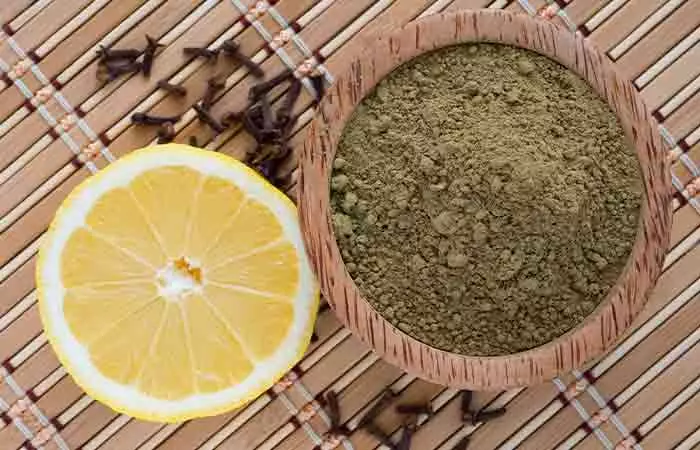
- Use Alkaline Ingredients: Mixing henna with alkalinei An alkaline solution causes the cuticles to swell and open, which allows color actives and dyes to enter deeper for a darker color result. or acidic ingredients can darken its color. Mix henna with pure lemon juice and apply to your skin to turn it darker (2), (6).
 Quick Tip
Quick Tip- Spices: Adding chili powder and mustard oil to henna gives it a darker shade (2). However, be careful of the amount of chili powder as excess powder may burn your skin. Add about a teaspoon of chili powder and a tablespoon or two mustard oil to henna.
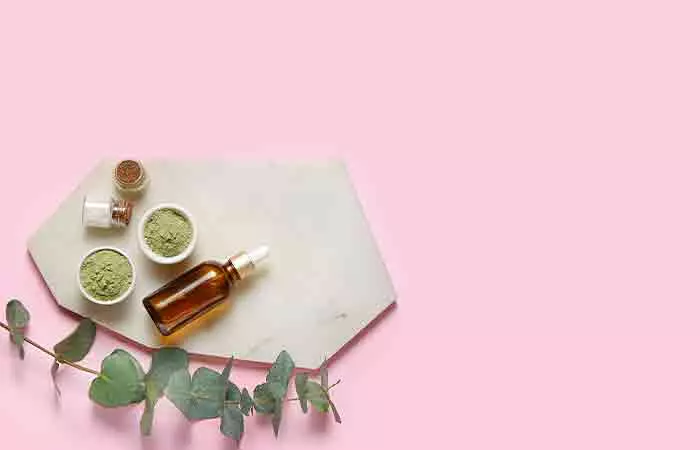
- Essential Oils: Adding essential oils like lemon oil, eucalyptus oil, or clove oil can darken henna (1). You can also mix Mahalabiya oil (an essential oil with a pine oil base) to darken henna. Essential oils contain monoterpenesi Chemical compounds/group of alcohols present in the essential oils extracted from plant foods like citrus fruits, cherry, and spearmint that make hydrophobic compounds more available. , a group of alcohols often used to darken henna (6), (7).
- Coffee: Coffee naturally gives off a brownish tint. Adding coffee to your henna mix can enhance its darkness (1).
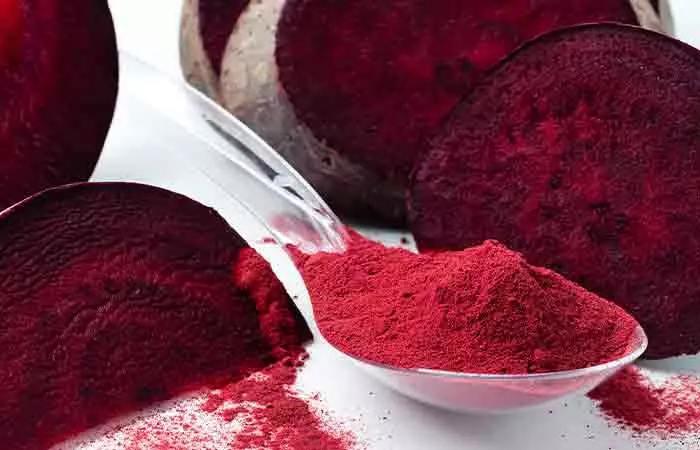
- Beetroot: Beetroot juice is used as a natural dye in cosmetics. It gives a deep pinkish-purple stain. You can add beetroot juice or beetroot powder to henna to enhance the color (1).
- Black Tea: Black tea contains tannini A class of chemical compounds found in the parts of plants, like tea and chocolate, which possess antioxidant properties. concentrates that can darken henna (1). Brew some tea leaves with water, add the decoction to henna, and mix.
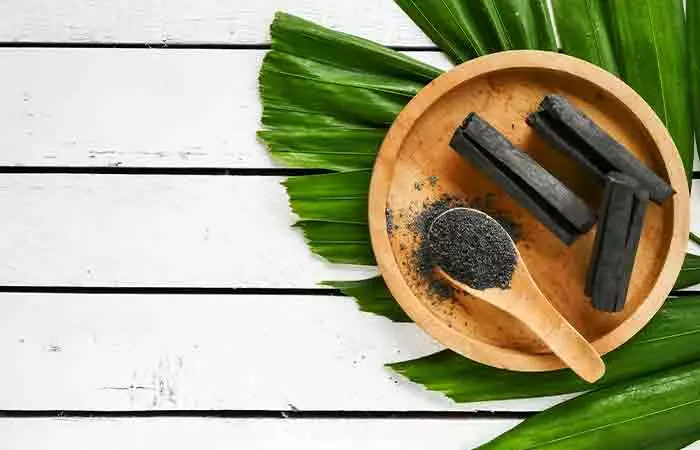
- Charcoal Powder: Charcoal has an ashy shade that can darken henna (1). Add a few teaspoons of charcoal powder to the henna before applying it to your hands.
- Sugar: Adding sugar to mehendi can intensify its color and make it last longer (1).
- Turpentine: Turpentine oil (pine resin distillate) can also darken mehendi and make it last longer (1).
You may use these ingredients to darken the mehendi mixture before application. However, if you are purchasing mehendi from the market, look for the following ingredients:
- Ammonia: Store-bought henna packets often contain ammonia as it darkens the pigmentation (6). Check the ingredients list before buying.
- Sodium Methylparaben: Look for mehendi that contains sodium methylparaben. This compound darkens the mehendi stain (2).
However, ammonia and sodium methylparabeni A chemical compound used as a preservative in foods and sometimes also used in medicinal drugs and cosmetic products. may damage the skin. It is best to stick to natural options and avoid these chemicals.
In a nutshell, proper application technique, right ingredients, and aftercare all team up to ensure that your mehendi color is darker and more beautiful. Different techniques like leaving the henna on for a longer period and adding lemon juice, coffee, or essential oils all help you achieve a deep color. It really pays to use natural options rather than chemicals for safety and the best result. With the following tips, you can ensure that your mehendi looks beautiful and remains vibrant for days longer as you bask in its rich designs.
In the following section, we have laid out the dos and don’ts to remember when applying mehendi. These pointers will help you enhance the color and longevity of mehendi.
Dos And Don’ts To Make Mehendi Last Longer
If you are curious about how to make mehendi darker and last longer, knowing these do’s and don’ts is important. Check them out.
Dos
- Leave the mehendi on for about 2-6 hours to get an intense color.
- Once you wash off the henna, dip your hands in cold water for two minutes. Cold water closes the skin pores and may seal the color for a longer time.
- Massage the dried henna on your hands with oil and let it soak. This gives deep and strong color.
- Cover the area of application when going out in the sun. Sun exposure may lighten the mehendi.
 Quick Tip
Quick TipDonts
- Avoid moisture exposure, and keep the henna on your hands or other body parts dry for as long as you can. This helps enhance its color.
- Do not wash the henna off your hands with soap, as it may fade the mehendi. Consider using cold water instead, as it is a well-known solution for how to remove mehendi effectively.
- Avoid using a hair dryer on a high heat setting to dry the mehendi. Use it on a low setting and keep it at a safe distance from your hands or feet. Holding the hair dryer too close to the area of application may cause color bleeding.
- Do not shave the area of application as it might scrape the top layer of the skin and affect the mehendi design.
- Do not apply skin-lightening products like skin bleach on the areas of application. This may fade the mehendi.
Follow these before and after-use henna tips to make your mehendi last longer. We have answered a few doubts that you may have in the following sections. Check them out.
How Long Should You Keep Mehendi On Your Hands?
Keep the mehendi for at least 2-6 hours. The longer you leave the henna on your skin, the stronger the color gets. Some women leave it overnight to obtain a dark shade of mehendi. However, be careful not to keep the mehndi for too long as it might turn black.
Does Vaseline Make Mehendi Darker?
Anecdotal evidence suggests that Vaseline might strengthen the color of mehendi. It traps the moisture and is water-resistant. As a result, it keeps the henna intact, allowing the color to seep into the skin. This may make the color last longer.
Does Coconut Oil Darken Mehendi?
Women traditionally use coconut oil to darken their mehendi design. It coats the application area and prevents moisture exposure, keeping the mehendi intact as it oxidizes. This helps intensify the color and make it last longer.
Although coconut oil was traditionally used to darken mehendi and also protect it from moisture, it is equally important to prepare your skin before applying mehendi. Preparing the skin is essential to ensure proper adhesion of mehendi, thereby a deep long-lasting stain. So let’s have a look at how to prepare for a spotless mehendi application.
How To Prepare For Mehendi Application
Preparation is a prime step when applying mehendi. These pre-application preparation techniques will make the application process better and ensure you get a beautiful, dark mehendi stain:
- Before applying mehendi, gently exfoliate the skin. A gentle scrub of sugar, honey, or olive oil would be fine. This will remove dead skin cells and allow the mehendi to stick closer to the skin for better color penetration.
- Clean the area nicely with soap and water to eliminate oil and dirt, which could hinder the application process.
- Gently pat dry with a towel to ensure that the skin is moisture-free. Mehendi sticks well to dry skin; therefore, this step is critical.
- Apply moisturizer to the skin, but avoid heavy creams or oils, as they will form a barrier between the skin and the mehendi.
- A thin layer of aloe vera gel or non-greasy lotion will maintain skin hydration without influencing the color.
- Refrain from using any perfumes, deodorants, or lotions containing alcohol to hinder the absorption of dye.
- Choose a comfortable place to sit with good lighting, as it will make handling the process that much easier, and a relaxed atmosphere will ensure that you enjoy every bit of the process.
If you choose to follow these preparation techniques, you’ll be setting yourself up for a beautiful mehendi application that lasts longer and is vibrant.
It is important to note that mehendi does not react the same way on all skin types. Therefore, a single darkening method won’t work for everyone. Understanding your skin type and the best practices for it is crucial for achieving the desired mehendi stain. Read on to find the best guide tailored for your skin.
Tips To Darken Mehendi For Different Skin Types
Different skin types absorb the henna color in different intensities, so using the right techniques to mix the henna and apply it to the hands is crucial for a deep stain. The guide below provides customized tips for five skin types. Check it out.
Dry Skin
- Apply a lightweight moisturizer to your hands a few hours before the mehendi application.
- Apply a sugar and lemon mixture after the mehendi has dried partially. This sealant will retain moisture and extend the mehendi’s contact with the skin.
- Once the mehendi has completely dried, scrape off the hard paste and apply natural oils like mustard or coconut oil to the skin.
Oily Skin
- Wash the hands with gentle soap and dry the area with a soft towel.
- Apply eucalyptus oil to the hands as it enhances henna absorption and dye release.
- After removing the dried mehendi paste, slather a small amount of oil, such as clove or mustard. Remember to avoid using a lot of oil, as it can fade the stain.
Normal Skin
- Lightly dab the sugar-lemon mixture on the mehendi after 15-20 minutes.
- Heat some cloves in a pan and hold your hands above the pan for a few minutes. The clove steam deepens the stain.
- Remove the paste once the mehendi has dried up, and wear gloves for a richer stain.
Combination Skin
- Wash the hands with gentle soap to remove excess oil from oily areas.
- Dab the sugar-lemon mixture after 15 to 20 minutes of mehendi application. Remember to apply it only to dry areas to maintain an even stain.
- Once the mehendi has dried completely, scrape off the paste and apply clove steam for a richer color.
Mature Skin
- Apply a non-greasy moisturizer to your hands before applying the mehendi.
- Instead of using a dryer, allow the mehendi to dry on its own. Once it is semi-dry, use the sugar-lemon mix.
- Leave the mehendi on for a longer time, as aging skin takes more time to absorb the henna color. Once dry, scrape off the mehendi with a tissue. Do not wash your hands for at least 12 hours to retain the intensity of the stain.
- To lock in the moisture, apply a natural oil like sesame or coconut oil to the hands instead of menthol-based balms. Finally, wrap your hands with a warm cloth.
Infographic: Top 5 Natural Remedies To Darken Your Mehendi Design
Women feel the need to darken their mehendi design to make it bold and beautiful and so that it stays for a long time. It enhances the look of the OOTD in any event and the pictures turn out to be so good! We’ve picked the best aftercare remedies to darken mehendi from the elaborate list above. All of these ingredients can be found right in your kitchen and are easy to use.
Check out the infographic below to know the top 5 natural ingredients to darken your mehendi designs.
Some thing wrong with infographic shortcode. please verify shortcode syntax
Mehendi or henna is a part of many cultures. In most traditions, the application of mehendi on a newlywed’s hands is a must. However, its beauty becomes manifold if it turns darker. People often ask how to make mehendi darker after washing hands. Well, you can follow a few tips in this regard, like leaving it for a longer time, applying heat, using a cling wrap, and using essential oils, coffee, beetroot, black tea, and charcoal powder to make it darker. To make it stay longer, avoid skin bleaching and washing henna with soap.
Frequently Asked Questions
Does olive oil darken henna?
Yes, olive oil may darken henna and make it long-lasting. You can apply it after scraping the henna paste off the skin.
Does Vicks make mehndi darker?
Yes, Vicks is known to make mehndi darker. The heat provided by it intensifies the shade.
Is it better to use natural or store-bought mehendi to make it darker?
Natural mehendi is better in terms of being long-lasting, natural in color, and safe from additives. Store-bought mehendi may stain quicker, but their chemicals may harm the skin.
Is it better to apply mehendi at night or during the day to make it darker?
Leaving the mehendi on the hands for 10-12 hours can make it dark, and this is more convenient to let it stay overnight. You can apply a lemon and sugar mixture or wrap your hands in cling film to keep the mehendi intact all night.
Can I use a specific type of mehendi cone to make the design darker?
Organic and pure henna cones made from natural henna powder are the best mehendi cones for dark color. Check the consistency of the henna in the cone, as a watered-down paste may fail to provide the desired stain.
Should I avoid using certain oils or lotions before or after applying mehendi to make it darker?
Do not apply any lotion or oil before applying the henna, as it will act as a barrier to pigment absorption. Avoid using oils or lotions on the design for at least 24 hours after removing the mehendi to prevent fading.
How long does it take for the mehendi to darken after removing it?
The henna stain may be orange while you remove it, gaining color over time. The shade darkens in 48-60 hours.
Illustration: How To Make Mehendi Darker And Long Lasting
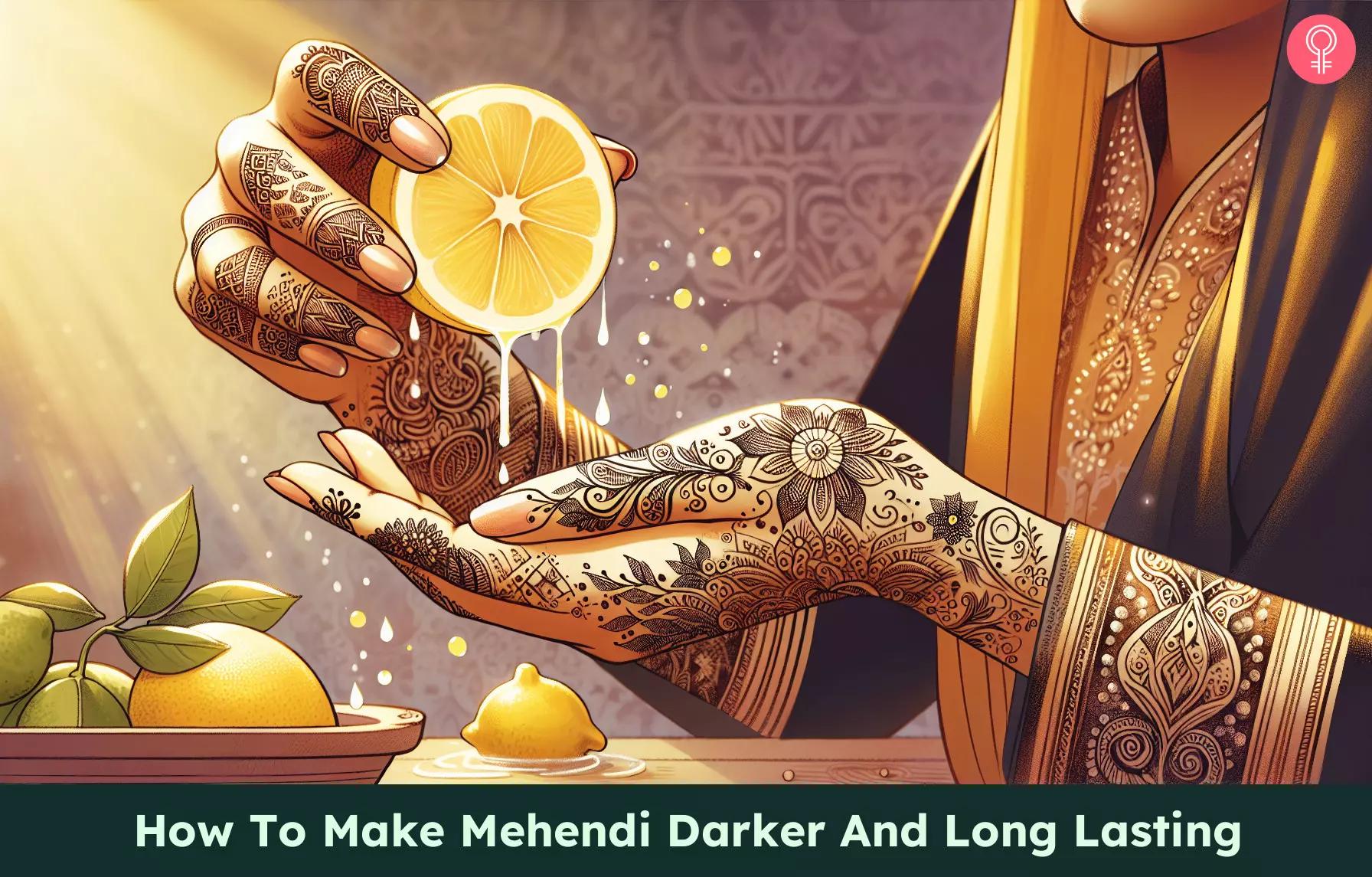
Image: Dall·E/StyleCraze Design Team
Achieve a darker henna stain like never before with this video! Learn the effective and proven techniques that ensure a rich, long-lasting color.
References
Articles on StyleCraze are backed by verified information from peer-reviewed and academic research papers, reputed organizations, research institutions, and medical associations to ensure accuracy and relevance. Read our editorial policy to learn more.
- Side effects Of Henna And Semi permanent black Henna Tattoos: A Full Review
https://onlinelibrary.wiley.com/doi/10.1111/cod.12074 - Retention Of Color Intensity Of Henna Paste During Storage
https://www.ncbi.nlm.nih.gov/pmc/articles/PMC2872353/ - A Review Study Of Chemical Constituents And Side-Effects Of Black Henna For Children
https://www.researchgate.net/publication/303574371_A_Review_study_of_chemical_constituents_and_Side-effects_of_black_henna_for_Children - Skin Barrier Damage After Exposure To Paraphenylenediamine
https://www.jacionline.org/article/S0091-6749(19)31606-9/fulltext - Fact Sheet
https://www.fda.gov/cosmetics/cosmetic-products/temporary-tattoos-hennamehndi-and-black-henna-fact-sheet - Henna
https://www.researchgate.net/publication/280102197_Henna - Monoterpenes In Essential Oils
https://link.springer.com/chapter/10.1007/978-1-4615-4729-7_5
Read full bio of Simone de Vlaming
Read full bio of Anjali Sayee
Read full bio of Asmita De
Read full bio of Swathi E







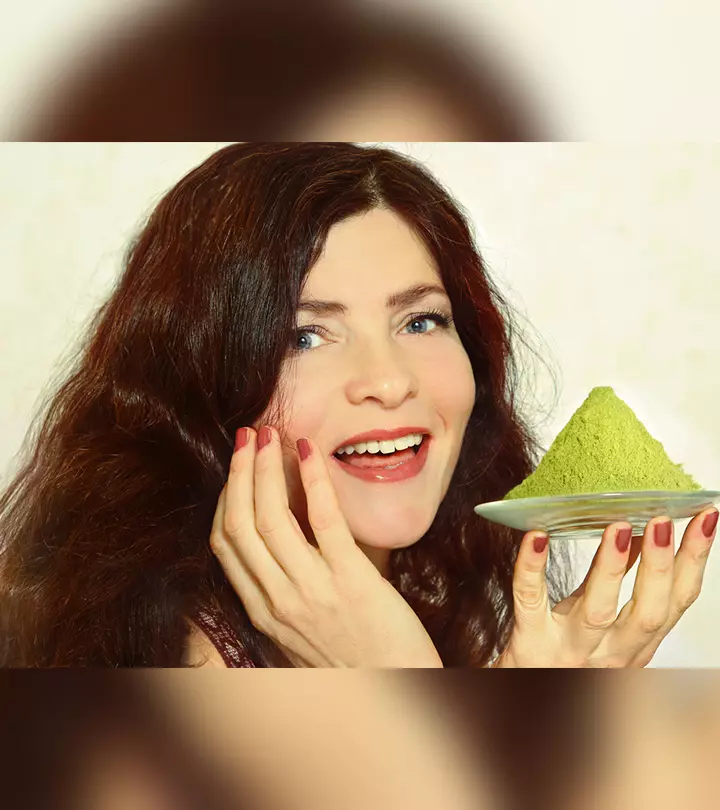
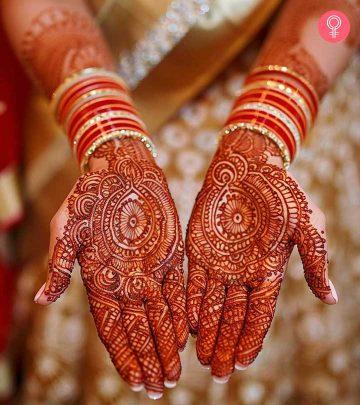
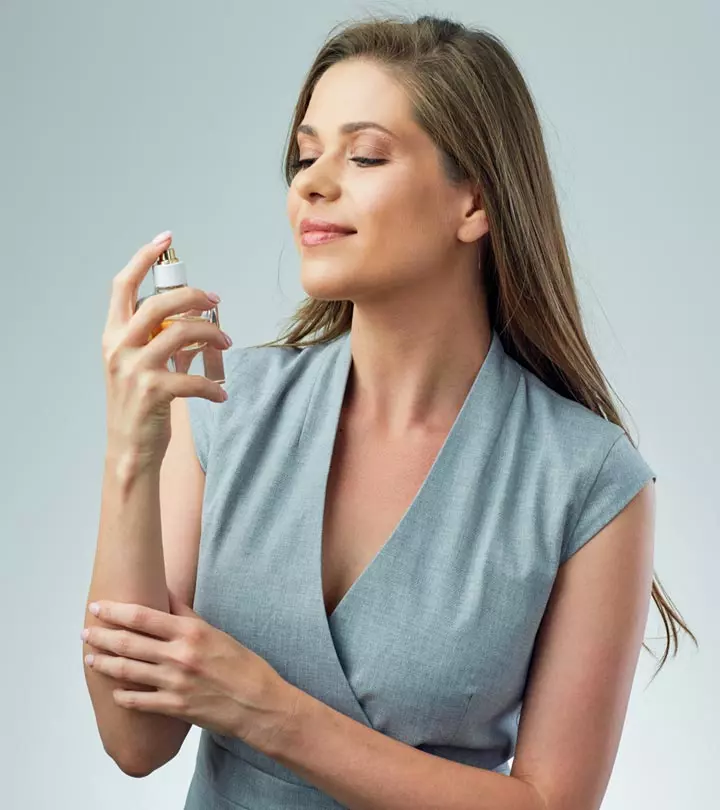
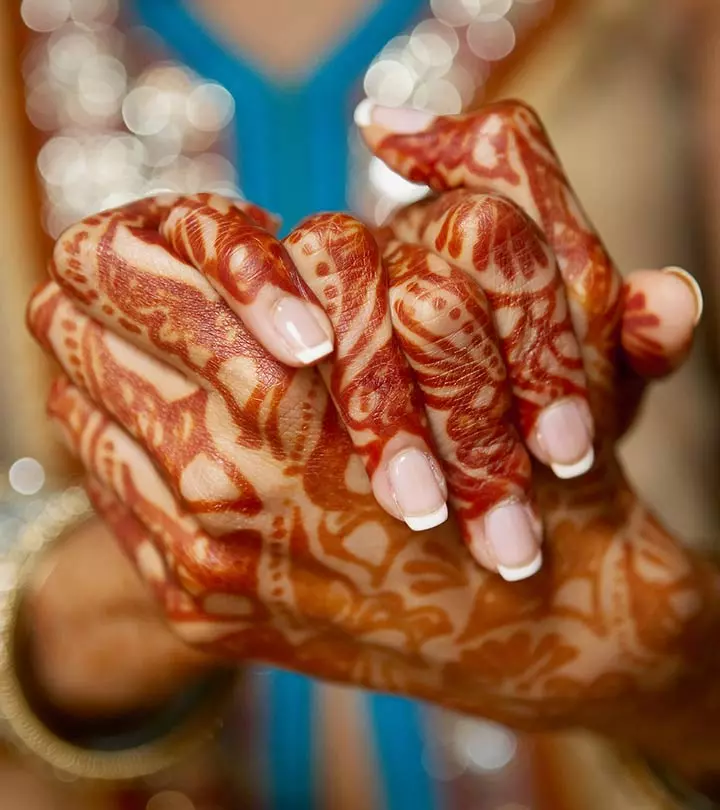

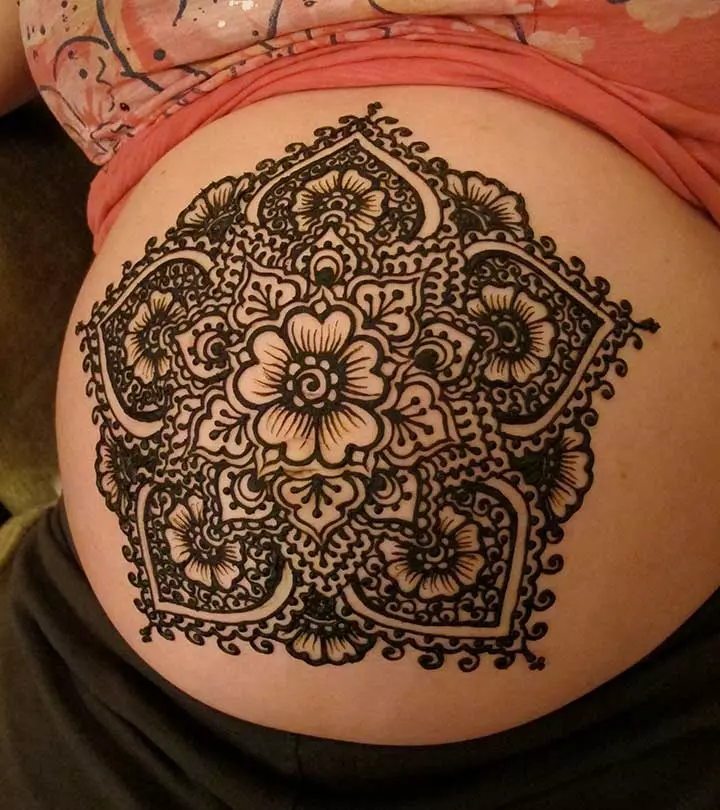


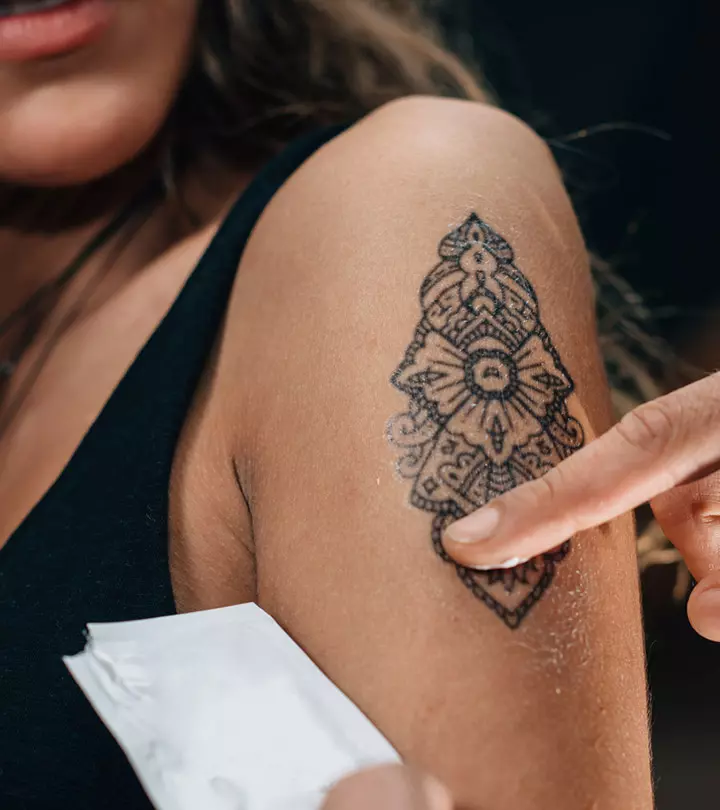
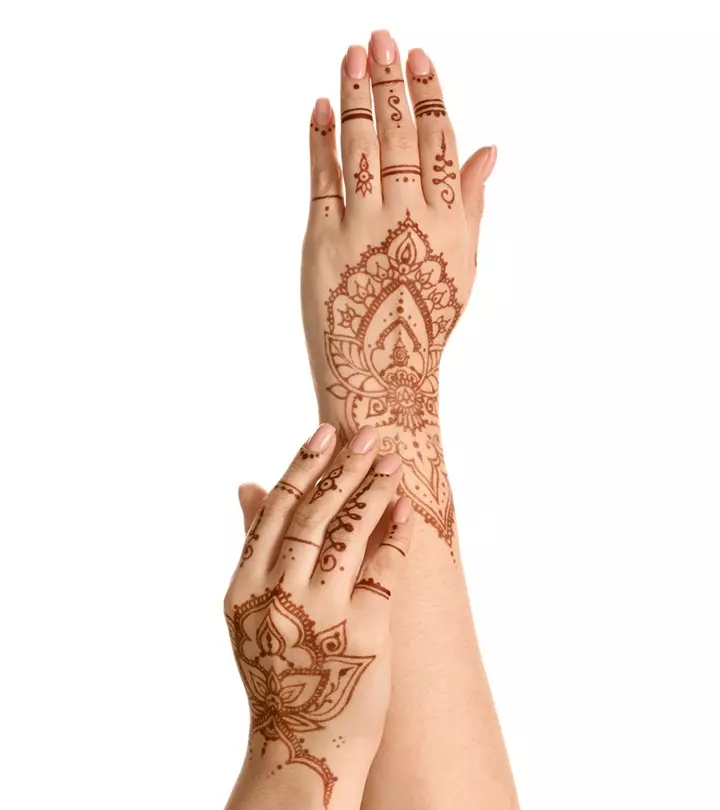
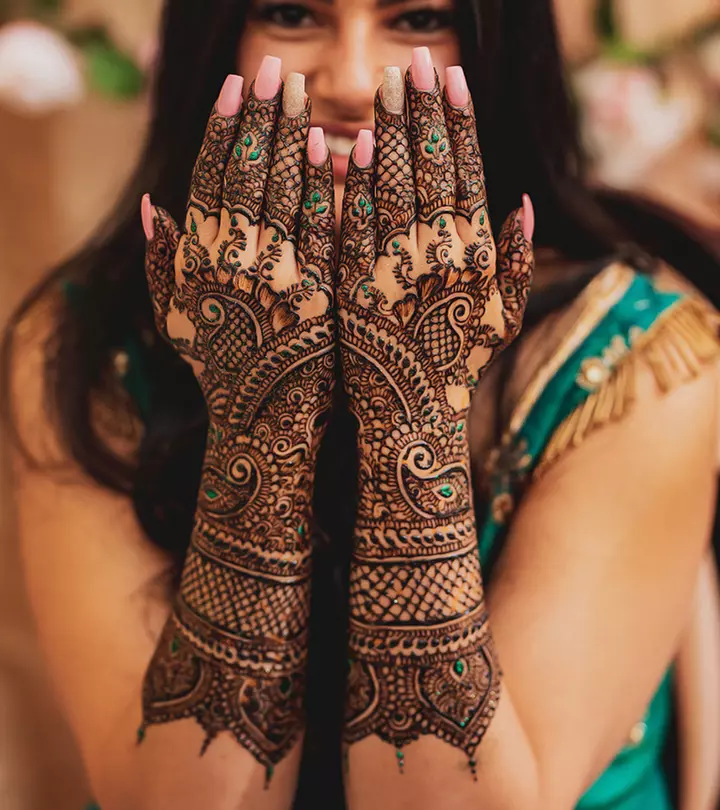
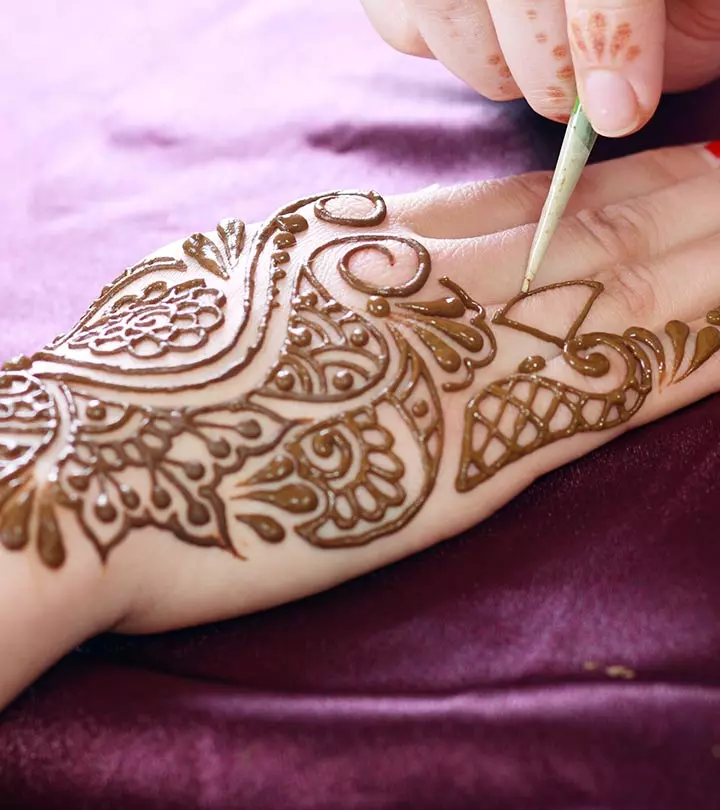

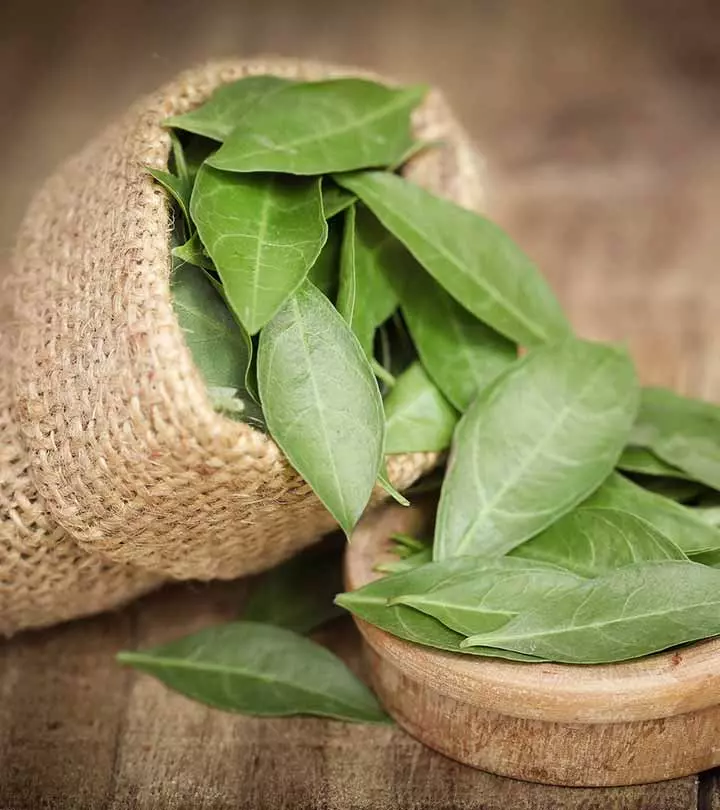
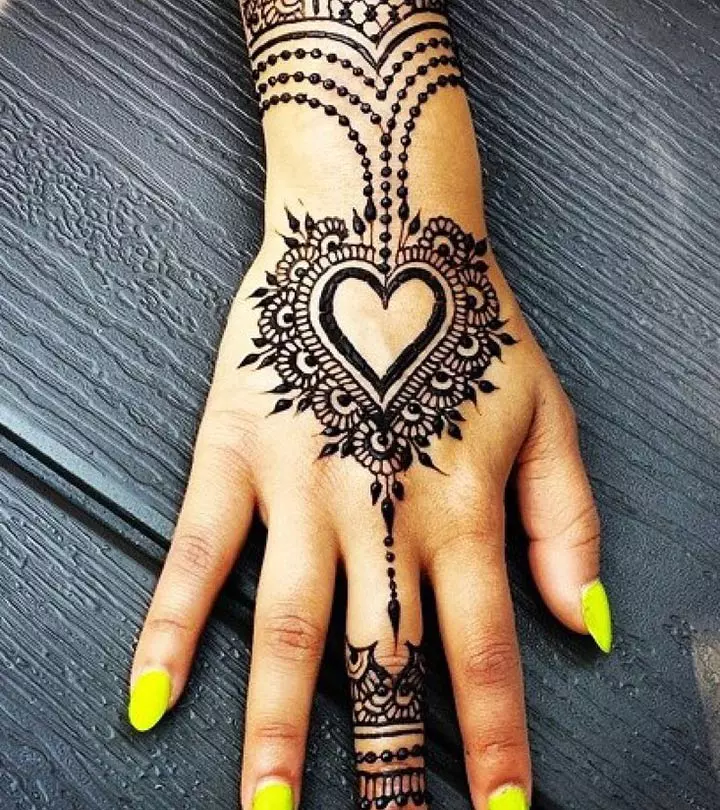
Community Experiences
Join the conversation and become a part of our empowering community! Share your stories, experiences, and insights to connect with other beauty, lifestyle, and health enthusiasts.